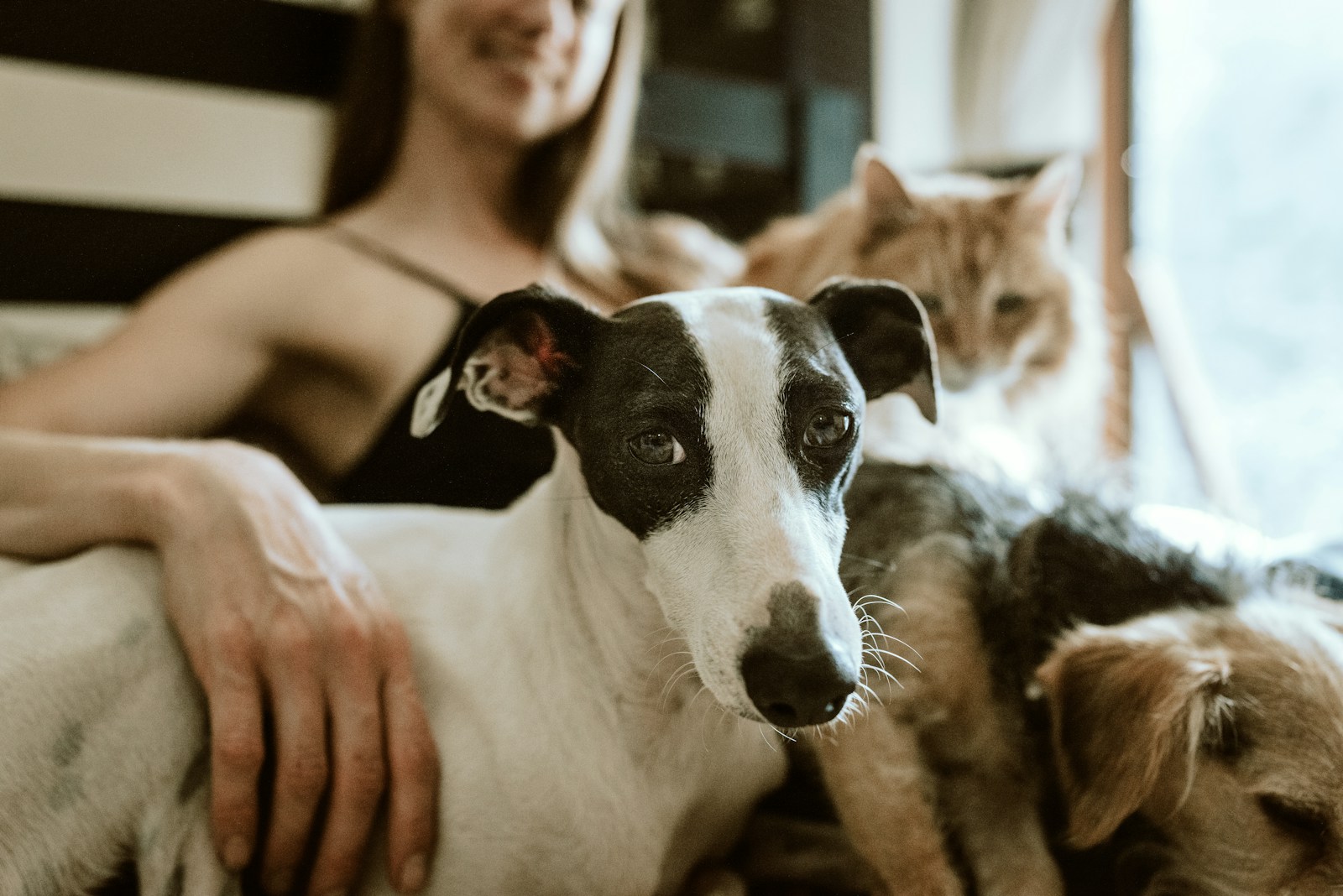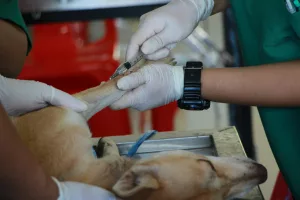Dogs eating poop, scientifically known as coprophagia, is a behavior that often leaves dog owners puzzled and, frankly, disgusted. While it may seem strange or repulsive, this behavior is actually quite common in the canine world. Understanding why dogs engage in this habit can help dog owners address the issue and, in many cases, correct the behavior. This article explores the reasons behind coprophagia, its potential risks, and how to manage and prevent it.
What is Coprophagia?
Coprophagia is the term used to describe the consumption of feces, whether it be their own, other animals’ feces, or even other dogs’ poop. While this behavior is more common in puppies, adult dogs can also exhibit it. Although it’s a normal behavior in certain situations, it can sometimes indicate underlying health or behavioral issues.
Types of Coprophagia
There are different types of coprophagia based on the source of feces a dog consumes:
- Autocoprophagia: When a dog eats its own feces.
- Intraspecific Coprophagia: When a dog eats feces from another dog.
- Interspecific Coprophagia: When a dog eats feces from another species, such as cats, rabbits, or horses.
Understanding the specific type of coprophagia a dog engages in can help determine the cause and appropriate solutions.
Why Do Dogs Eat Poop? Common Causes of Coprophagia
There is no single reason why dogs eat poop. In fact, this behavior can be triggered by a variety of factors, ranging from instinctual behaviors to health issues. Below are some of the most common reasons why dogs engage in coprophagia.
1. Instinctual Behavior
One of the most natural reasons dogs eat poop is rooted in their instincts. In the wild, canines, such as wolves and foxes, often consume feces to keep their dens clean and free of parasites. For mother dogs, it is instinctual to eat the feces of their puppies during the first few weeks after birth. This behavior helps keep the den clean and protects the puppies from predators, who might be attracted to the scent.
2. Exploratory and Learning Behavior in Puppies
Puppies are naturally curious and explore their environment with their mouths. During this exploratory stage, puppies may eat poop as part of their investigation into the world around them. This behavior is usually temporary and tends to diminish as the puppy grows older and learns more appropriate behaviors.
3. Nutritional Deficiencies
Dogs may eat poop if they are lacking certain nutrients in their diet. In some cases, dogs instinctively seek out feces as a way to make up for deficiencies, especially if their diet lacks essential vitamins, minerals, or digestive enzymes. For instance, dogs that have low levels of vitamin B, iron, or other nutrients may try to consume feces in an attempt to replenish these missing elements.
4. Malabsorption or Digestive Issues
If a dog is unable to properly digest and absorb nutrients from its food, it may resort to eating feces. Conditions like exocrine pancreatic insufficiency (EPI) can cause malabsorption, leading the dog to consume poop in an effort to retrieve undigested nutrients. Similarly, dogs with gastrointestinal issues may eat feces to gain additional digestive enzymes.
5. Attention-Seeking Behavior
Dogs are social animals and may engage in undesirable behaviors to gain attention, even if that attention is negative. If a dog realizes that eating poop results in a strong reaction from its owner—whether it’s scolding or chasing them—they may repeat the behavior as a way to get attention.
6. Boredom or Lack of Stimulation
Dogs that are left alone for extended periods, have limited access to toys, or don’t receive enough physical or mental stimulation may engage in coprophagia out of boredom. Eating poop can be a way for them to pass the time and entertain themselves.
7. Anxiety or Stress
Stressful situations, such as being confined for long periods, separation anxiety, or living in a chaotic environment, can lead to compulsive behaviors like coprophagia. Dogs may eat poop as a self-soothing mechanism or as a response to stress and anxiety.
8. Learned Behavior from Other Dogs
Dogs are pack animals and often learn behaviors by observing other dogs. If a dog witnesses another dog eating feces, it may mimic the behavior, especially if they share the same environment.
9. Cleaning Instincts in Confined Spaces
In environments like shelters or kennels, dogs may eat feces due to the instinctual need to keep their living space clean. In such situations, they may feel compelled to remove feces from their confined area if it’s not regularly cleaned by humans.
10. Medical Conditions and Parasites
Certain medical conditions, such as diabetes, Cushing’s disease, or parasites, can cause increased hunger or appetite (polyphagia), leading a dog to eat anything it can find, including feces. If a previously healthy dog suddenly starts engaging in coprophagia, a veterinary checkup is recommended to rule out any underlying health problems.
Potential Risks of Coprophagia
While coprophagia is usually more of a behavioral concern than a health threat, it can pose risks, especially if a dog is eating feces from unknown sources. Some potential dangers include:
- Parasites and Bacteria: Feces can contain harmful bacteria, such as E. coli or Salmonella, as well as parasites like roundworms, hookworms, or giardia, which can be transmitted to the dog.
- Toxins: In some cases, feces from other animals may contain harmful substances, such as medications or toxic substances that could harm your dog.
- Gastrointestinal Upset: Eating feces can lead to digestive problems, including vomiting, diarrhea, and stomach pain.
- Social and Hygiene Concerns: Dogs that engage in coprophagia may have unpleasant breath and could spread bacteria when licking their owners or other dogs.
How to Manage and Prevent Coprophagia
If your dog has developed a habit of eating poop, there are several strategies you can implement to discourage this behavior. The approach you choose will depend on the underlying cause of the coprophagia.
1. Ensure a Balanced Diet
Make sure your dog is receiving a well-balanced diet that meets its nutritional needs. If you suspect a nutritional deficiency, consult your veterinarian about dietary changes or supplements. Providing high-quality, nutrient-dense food can reduce the likelihood of your dog seeking out feces to compensate for missing nutrients.
2. Add Digestive Enzyme Supplements
If your dog’s coprophagia is due to malabsorption or digestive issues, your veterinarian may recommend adding digestive enzyme supplements to their diet. These supplements help improve nutrient absorption and reduce the urge to eat feces.
3. Practice Good Hygiene and Clean-Up
One of the simplest ways to prevent coprophagia is to clean up after your dog immediately. Removing feces from your yard, living space, or walking areas can eliminate the opportunity for your dog to engage in this behavior.
4. Provide Mental and Physical Stimulation
Boredom and lack of stimulation can be major contributors to coprophagia. Ensure that your dog gets plenty of exercise, playtime, and mental stimulation through toys, training exercises, and interactive games. A well-stimulated dog is less likely to develop undesirable behaviors like eating poop.
5. Train the “Leave It” Command
Teaching your dog the “leave it” command can be highly effective in preventing coprophagia. Consistent training helps your dog learn to avoid objects or substances they shouldn’t be consuming. Positive reinforcement and rewarding your dog for obeying the command can strengthen this behavior.
6. Use Taste Deterrents
Some commercial products are designed to make feces taste unpleasant to dogs. These products can be added to your dog’s food, causing their feces to have a bitter or unappetizing flavor. However, this method is not always effective for every dog, and results can vary.
7. Address Stress and Anxiety
If your dog’s coprophagia is linked to anxiety or stress, it’s important to identify the stressors and work on reducing them. This could involve providing more companionship, creating a calm environment, or working with a professional trainer or behaviorist. In some cases, your veterinarian may recommend anxiety medications.
8. Vet Checkup for Underlying Medical Issues
If your dog suddenly starts eating poop or if the behavior is persistent despite your efforts, it’s important to consult your veterinarian. A medical checkup can help identify any underlying health conditions that may be contributing to the behavior, such as parasites, gastrointestinal issues, or metabolic disorders.
9. Consider Professional Help
In cases where coprophagia is severe or resistant to home interventions, working with a professional dog trainer or behaviorist can be beneficial. These experts can assess your dog’s behavior and develop a tailored training plan to address the issue.
Conclusion
Coprophagia is a common but often misunderstood behavior in dogs. While it can be concerning for pet owners, understanding the reasons behind it can help in managing and correcting the behavior. From natural instincts and dietary needs to stress and boredom, there are numerous factors that can drive a dog to eat poop. By addressing the root cause and taking proactive measures, you can help your dog overcome this behavior and enjoy a healthier, more hygienic lifestyle.
Whether your dog’s coprophagia is temporary or persistent, patience and consistency are key when working to eliminate the habit. With the right approach, most dogs can learn to leave this unsavory behavior behind.




